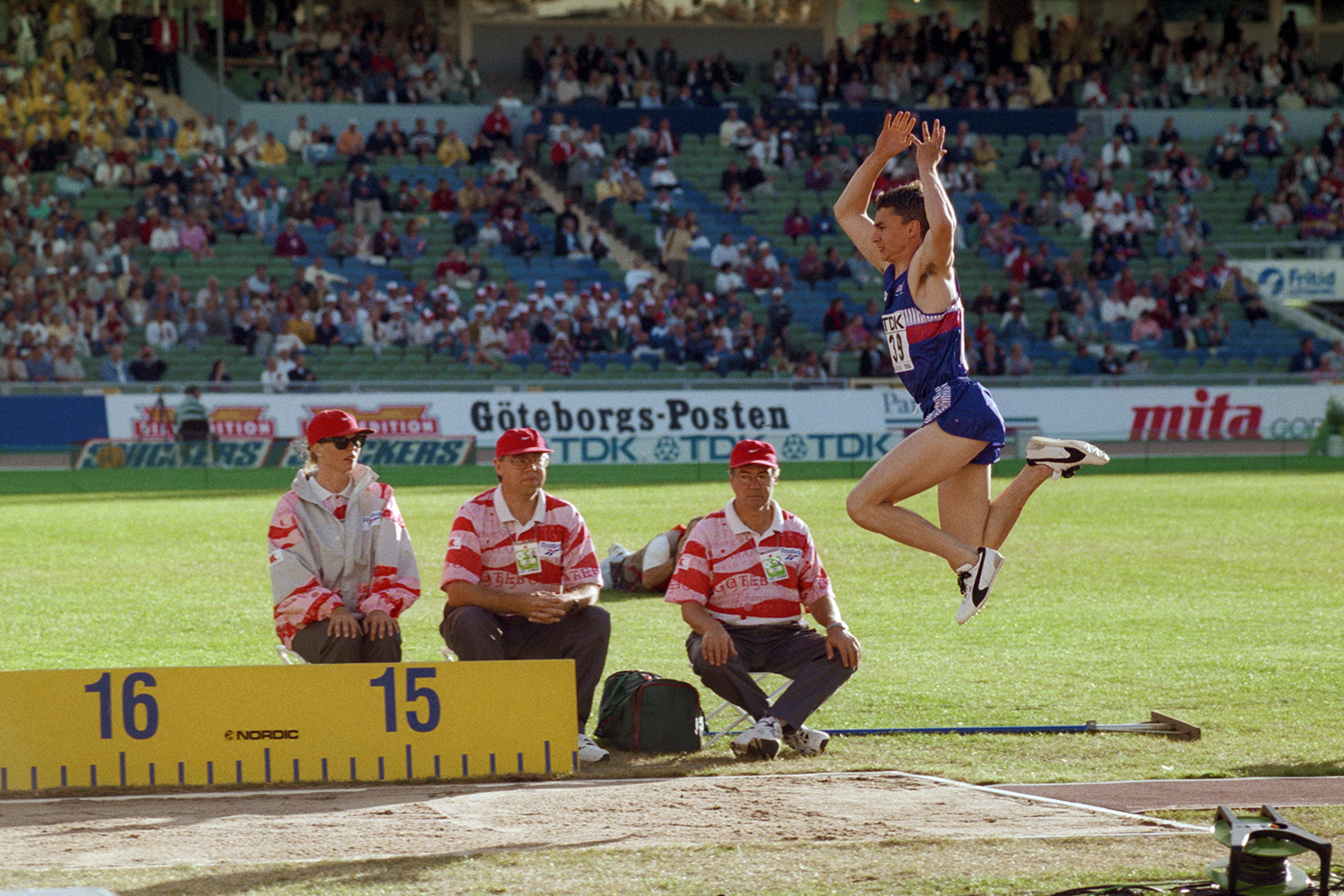Thirty years ago, on a warm evening at the World Championships in Gothenburg, Jonathan Edwards hopped, skipped and jumped into immortality. His world record still stands. Edwards has suggested that such an enduring record tells a sorry tale about the state of track and field. He is right about the trend in British athletics but harsh on himself. His triple jump record is more remarkable than he thinks.
On the face of it, there are grounds for optimism. British athletes won more medals at the Olympics in Paris last year than at any Games since 1984. The great moments were Keely Hodgkinson’s gold in the 800m, Josh Kerr’s silver in the 1500m and Katarina Johnson-Thompson’s silver medal in the heptathlon.
That said, there were no British medals in the field events and Edwards is pointing to a worrying phenomenon when he says British athletics is falling behind sports which offer greater material rewards. And then, within athletics, track offers a lot more than field. Michael Johnson’s Grand Slam Track was launched last year, with compelling top prize money of £100,000 at each meet. And yet that money didn’t materialise after the event hit financial problems.
UK Sport has cut its funding for athletics for the second successive Olympic cycle. The athletes in Los Angeles in 2028 will have a budget that is 8% down on Paris 2024. Even more worrying, athletics is declining in schools and clubs. Figures from England Athletics show that participation in the sport did not recover well from the pandemic. The 50,000 regular athletes in 2019 had fallen to 45,000 by 2023. This is a set of disciplines that have produced some of the great moments in sport. The signs are already there that football will consume athletics and UK Sport has a duty of care to ensure that this does not happen.
Edwards is an eloquent voice in defence of his sport. He wants to ensure that someone will emerge to break his triple jump record but we may be waiting a long time for that. Some records last because they take the discipline out of time. Jarmila Kratochvílová’s record for the women’s 800m was set in 1983 and still stands – though allegations of drug-taking dogged her career. Jürgen Schult held the men’s discus world record for 38 years. And nobody has ever long jumped as far at an Olympic Games as Bob Beamon in Mexico City in 1968.
The truth may be that, in Gothenburg on 7 August 1995, when Edwards jumped 18.29m, he was getting close to the limit of technical and physiological human capability. Christian Taylor once jumped 18.21m and, last year at the European Championships in Rome, Jordan Díaz jumped 18.18m. It is possible he could yet go further.
In Gothenburg, Edwards’s jump contained an almost optimal ratio of hop to skip to jump. His angles of approach were close to perfect. On a fast Mondotrack surface, with a tailwind that was as fast as it can be while remaining legal, Edwards got close to 18.6m, which is the latest estimate of the human ceiling. He is right about needing more money for British athletics but it’s a leap of the imagination to expect someone to jump further than him. Not many people will, ever.
Photograph by Clive Brunskill/Getty Images
Newsletters
Choose the newsletters you want to receive
View more
For information about how The Observer protects your data, read our Privacy Policy



